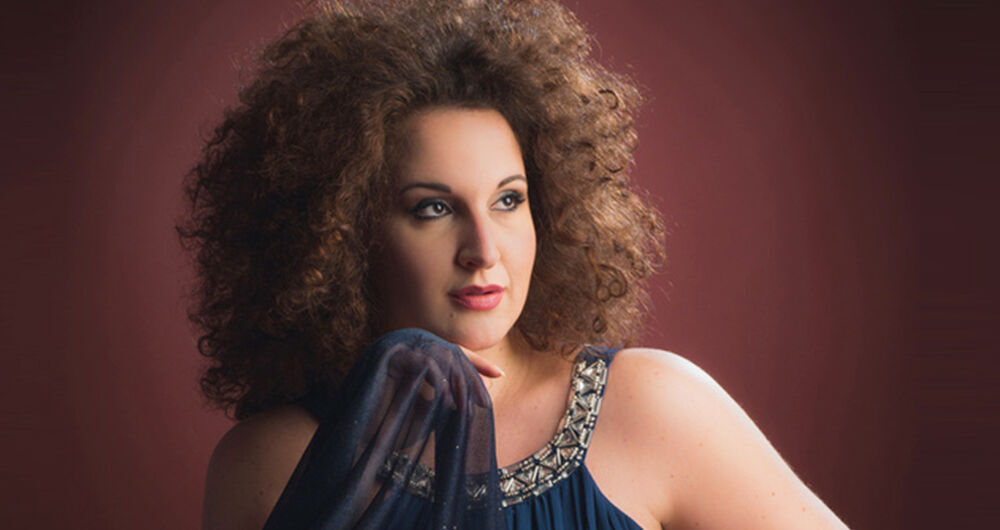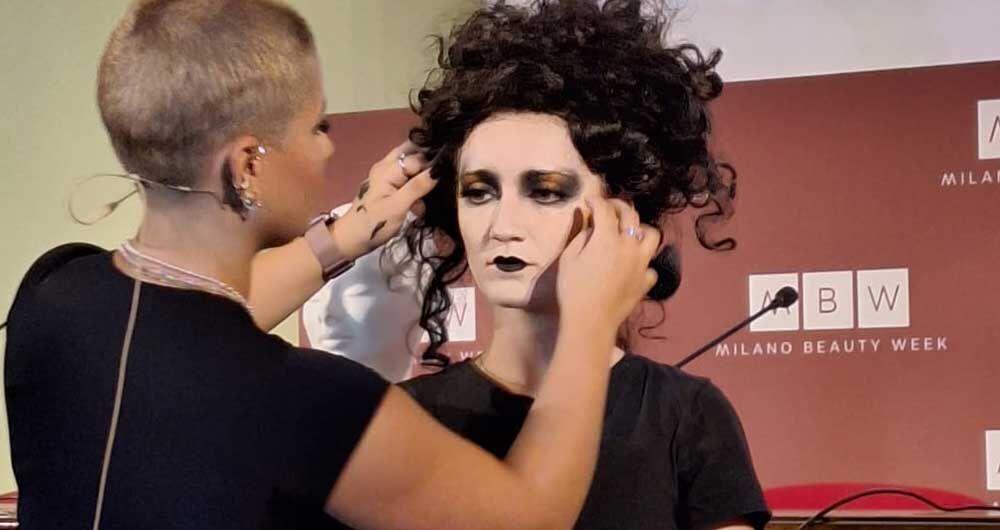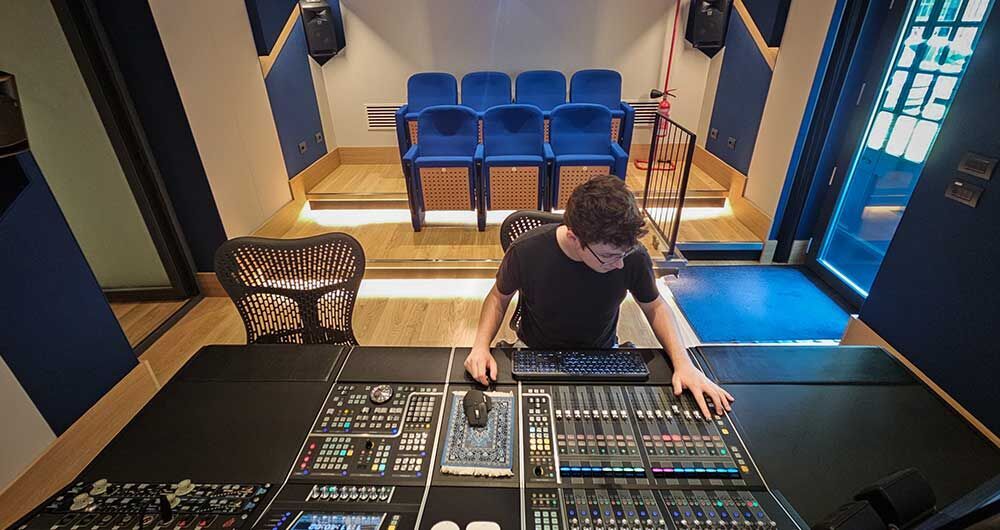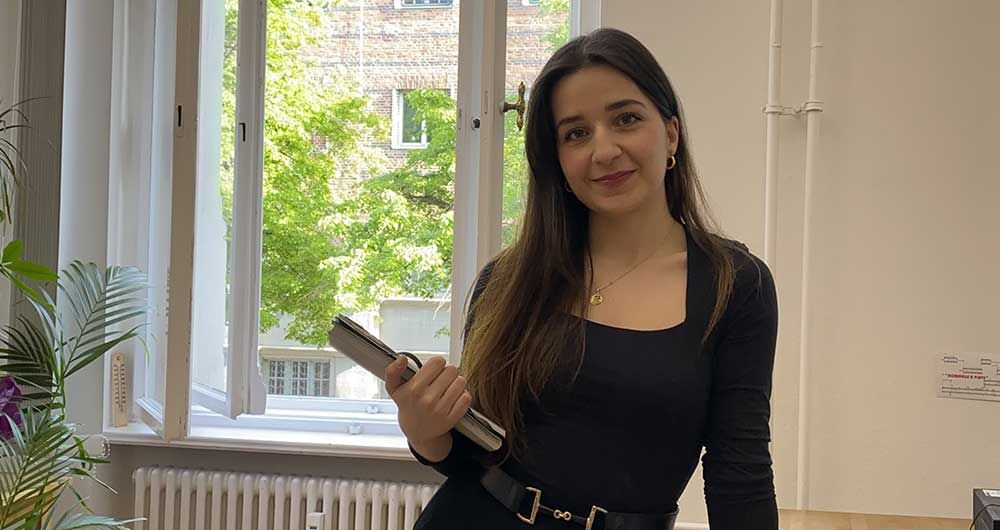Interview with Clarissa Costanzo
Clarissa Costanzo is a young soprano born in Capua in 1991; she studied at the Conservatorio “San Pietro a Majella” in Naples, where she graduated in 2014 in singing with top marks and honorable mention.
A student of the La Scala Theater's Academy of Improvement for Opera Singers since 2019, she will receive her diploma in November as part of the institutional concert.
How did your passion for opera singing come about?
I started studying singing at the age of 19 and realized my predisposition for opera singing only two months before I entered the Naples Conservatory, where I later graduated in singing.
At first, singing for me meant imitating the great pop voices of the 1990s such as Whitney Houston, Mariah Carey, and Celine Dion, which were very much in vogue at that time, but, one day, my voice teacher told me that I had a good aptitude for another style and advised me to try the path of opera singing.
Opera singing: an inner cry.
As Sylvia Plath said, “I am inhabited by a cry. ”To this day I can say that music and singing have been a need as well as a passion for me. I was a very insecure teenager, and in the period of my parents' separation I suffered greatly from the inability to be able to communicate and express myself as I wanted and felt. That is why I say that music has become for me the main means of communication to the outside world. Through my voice I am able to enter into contact both with myself and with the people listening to me. It has been a form of personal therapy to not be anonymous.
What are the models you are inspired by?
I may be obvious, but Maria Callas for me has always been the artist I have always been inspired by. In addition, I have often fallen in love with voices that I heard for the first time in the theater: for example, once, I was in San Francisco and I heard Lianna Haroutounian, an Armenian soprano, perform in the interpretation of a “classic” such as Un bel dì, vedremo and I totally fell in love with her. It shook me up.
I have always been inspired by all those artists who convey strong emotions to me. Opera music is not an art that reaches its highest expression only in the ability to show off one's vocal gifts, virtuosity, but above all in the ability to arouse emotions, feelings and sometimes even disturbances in those who listen.
Who has most influenced your artistic path?
I would like to mention Davide Rondoni. A poet of profound and very high sensitivity of our time, an encounter that changed the course. Getting to know him contributed to a further liming of my potential, artistically and humanly speaking.
What were your first roles?
I was lucky enough to do a lot of work once I graduated from the Conservatory, thanks to the help of an agent who saw me perform during a concert and proposed a collaboration.
In 2013 I played the role of Madame Lidoine in Poulenc's I Dialoghi delle Carmelitane at the Conservatorio San Pietro a Majella, directed by Serenella Isidori in collaboration with the Teatro San Carlo in Naples.
In 2014 I collaborated with As.Li.co for OperaDomani: Aida: Love is Courage, which allowed me to make my debut in the role in numerous theaters such as Teatro Sociale di Como, Teatro Ponchielli di Cremona, Teatro degli Arcimboldi di Milano, iI Teatro Verdi di Pordenone, and Teatro Comunale di Bolzano.
Between 2015 and 2016, I was the interpreter of Suzel in a production of Mascagni's L'Amico Fritz entrusted to the direction of Leo Nucci and the conducting of Donato Renzetti at the Teatro Municipale in Piacenza, Teatro Alighieri in Ravenna, and Teatro Comunale “Luciano Pavarotti” in Modena.
An important meeting: Leo Nucci
I must say it was an unforgettable experience. For that role I studied a lot, not only for vocal interpretation, but also for stage interpretation, working a lot on gestures. At that time I was very young, and honestly I was always improvising a little bit on stage, I was very immature especially in my approach to the audience. One day, while I was performing, I began to hear in the hall cheering “Bravo, Clarissa!” They were getting to know me, and I realized that I had reached their hearts.
How did you come to the Teatro alla Scala Academy?
I had already been working for a few years, but I still decided to take this path of specialization because, as I said, I have always tried to perfect myself and achieve the highest level of preparation. So I decided to participate in the selections for the two-year Academy.
I brought some pieces I had already tackled in the past, arias from Un ballo in maschera by Giuseppe Verdi and Mosè in Egitto by Gioachino Rossini. I was very nervous and excited, especially when I arrived on the stage of La Scala Theater in the final round. It was my first time on that prestigious stage. I saw other colleagues crying and panicking and anxious ... I tried to keep as much focus and calm as possible, I didn't want to ruin this great opportunity.
The Academy allowed me to meet masters of the highest level and to have access to intensive training, through alternating classroom, individual and group lessons, and several masterclasses of improvement, all moments of great growth.
I remember with pleasure the masterclass held by Marcelo Álvarez aimed at preparing a concert at the Ridotto dei Palchi “Toscanini” of the Teatro alla Scala. It allowed me to deepen my mastery of breath, of sound, of listening to my body to produce the best possible sound.
We heard you in “Se come voi piccina” from Giacomo Puccini's Le Villi at the concert “Regine, Sante e Femmes Fatales” streamed from the Ridotto dei Palchi of La Scala Theater. Can you tell us about it?
I had already sung it on other occasions. This aria has a very evocative melody, like almost all of Puccini's musical motifs. When I started studying it to bring it to the concert, I found myself humming it even before going to sleep. It is a very pleasant tune. Unfortunately, the concert was recorded and streamed without an audience present in the hall, due to the protracted anti COVID-19 regulations. It was very strange, also because the last time I performed from the Ridotto dei Palchi of La Scala Theater was in February 2020 and there had been a huge turnout of audience present. Singing such an intimate aria that evokes the image of a girl with flowers in her hand dedicating her most beautiful words of love to her beloved would surely have worked better with warmth of people.






